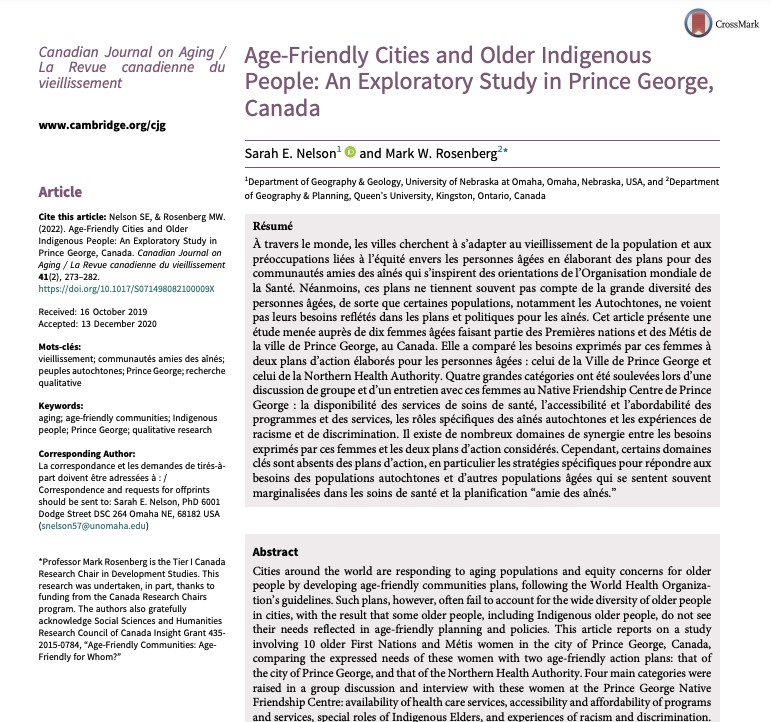Age-friendly Cities and Older Indigenous People: An Exploratory Study in Prince George, Canada

Cities around the world are responding to aging populations and equity concerns for older people by developing age-friendly communities plans, following the World Health Organization’s guidelines. Such plans, however, often fail to account for the wide diversity of older people in cities, with the result that some older people, including Indigenous older people, do not see their needs reflected in age-friendly planning and policies. This article reports on a study involving 10 older First Nations and Métis women in the city of Prince George, Canada, comparing the expressed needs of these women with two age-friendly action plans: that of the city of Prince George, and that of the Northern Health Authority. Four main categories were raised in a group discussion and interview with these women at the Prince George Native Friendship Centre: availability of health care services, accessibility and affordability of programs and services, special roles of Indigenous Elders, and experiences of racism and discrimination. There are many areas of synergy between the needs expressed by the women and the two action plans; however, certain key areas are missing from the action plans; in particular, specific strategies for attending to the needs of Indigenous and other older populations who often feel marginalized in health care and in age-friendly planning.
